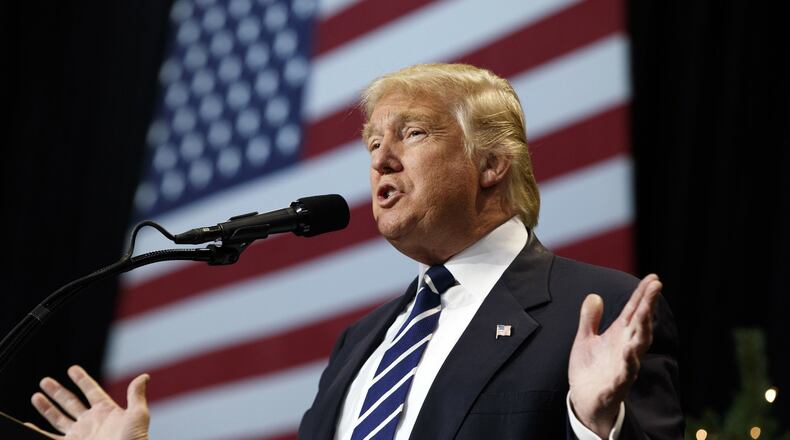The Georgia GOP spent more than $200,000 last year in legal fees to defend phony Republican electors who could face criminal charges amid Fulton County’s probe into whether Donald Trump and his allies committed crimes while trying to overturn his 2020 defeat.
Newly released campaign disclosures show that at least $220,000 went to law firms that represented many of the GOP electors. In all, the records show the party spent at least $290,000 in overall legal expenses in 2022, compared with about $90,000 in 2021.
The financial arrangement came into clearer focus last week when Georgia GOP Chair David Shafer, one of the 16 fake electors, announced he wouldn’t seek another term and praised the party’s executive committee for agreeing to cover the legal fees in his farewell dispatch.
“I have raised the money to honor that commitment,” he wrote in a note to activists, “so that none of them have had to pay a penny out of pocket.”
The false slate of electors has become a major point of interest of the Fulton County special grand jury, as some legal experts say those GOP electors may have violated election fraud and forgery statutes, among other crimes.
The fake electors, who met the same day in December 2020 that real electors cast Georgia’s votes in the Electoral College for Joe Biden, submitted to state and federal authorities documents that claimed they were the “duly elected” electors from the state, which they said Trump won.
Fulton County District Attorney Fani Willis said in a July court filing that the 16 fake electors, could be targets of the special grand jury’s ongoing investigation.
Several electors have said they participated in the ceremony in case pro-Trump legal challenges succeeded and that they are now being victimized by politically motivated prosecutors. Among them is Shafer, who said the “organs of law enforcement have been weaponized against Republicans.”
Holly Pierson of Pierson Law, which was paid at least $52,000 in attorney fees by the Georgia GOP last year, said the state party took the “principled and courageous” decision to cover the legal bills.
“It’s incredibly frustrating that any of the Republican electors were put in the position of having to obtain counsel when it is so abundantly clear legally that none of them did anything wrong,” she said.
Another firm representing the electors, Strickland Debrow, was paid about $170,000 last year in attorney fees by the state party. The firm declined to comment.
It’s unclear whether any of the fake electors will face charges, though Willis has said her decision on whether to move forward is “imminent.”
Portions of the special grand jury report released this week showed jurors are concerned that at least one witness may have lied under oath. The grand jurors also rejected claims that “widespread fraud took place” in the election. But other key details remain sealed.
The Latest
Featured





